IRGC Number Two Calls For Destruction Of Israel
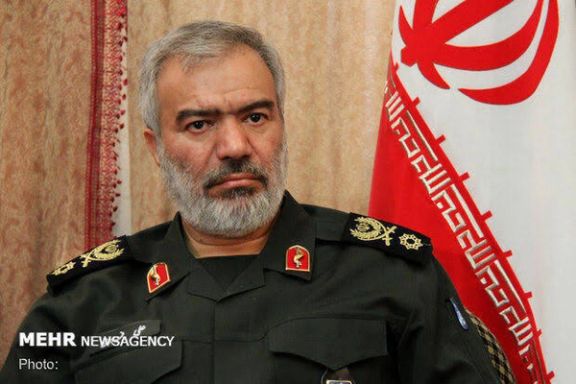
Ali Fadavi, the deputy commander-in-chief of the Islamic Revolutionary Guard Corps (IRGC), has declared “the resistance will go on until the cancerous gland [Israel] is eradicated from the world map".

Ali Fadavi, the deputy commander-in-chief of the Islamic Revolutionary Guard Corps (IRGC), has declared “the resistance will go on until the cancerous gland [Israel] is eradicated from the world map".
He made the comments on Tuesday, echoing regime leadership statements reaffirming its support for its largest Palestinian proxy, Hamas.
Just after the Hamas invasion of Israel on October 7, Hossein Salami, the IRGC Commander, declared, "Today, the people of Palestine are pursuing and arresting Israeli soldiers without any fear, and Israel can no longer declare victory. Today signifies the end of occupation and aggression, with even the Americans unable to save them."
Michael Kurilla, the commander of the United States Central Command (CENTCOM), has traveled to Israel to meet with Israeli officials. In a statement Tuesday, CENTCOM announced that one of Kurilla's primary goals during his visit is to assess the defensive needs of the Israeli army and work to prevent the escalation of conflict in the region.
According to reports from France 24, a Russian-proposed resolution to condemn the recent hostilities in the region failed to receive sufficient support in the United Nations Security Council, with four votes in favor, four abstentions, and six votes against.
The reason for opposition by the United States and several other countries is reportedly the absence of Hamas' name in the resolution as a party responsible for the deadly attacks on Israel on October 7.
While fears of a ground invasion into Gaza continue, the Israeli Defence Forces is keeping its cards close to its chest while it continues airstrikes on the strip.
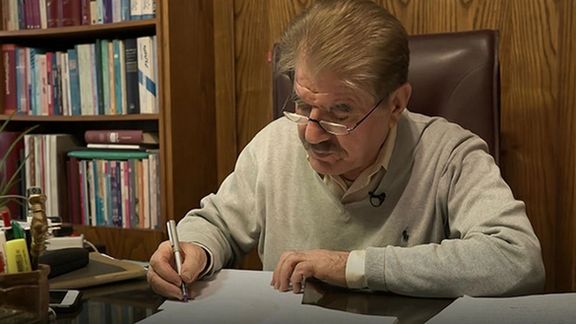
Saleh Nikbakht, the attorney representing the family of Mahsa Amini, has been sentenced to one year in prison on charges of "propaganda activities against the system".
The legal activist also received a supplementary punishment of two years prohibiting online activities. The initial court proceedings for Nikbakht took place in August, during which he faced allegations related to his media interviews, including discussions on the legal aspects of Mahsa Amini's case.
Notably, Nikbakht had voiced objections to the forensic report attributing Amini's death to a "heart attack" and an "underlying disease," advocating for a reinvestigation by a committee of independent medical professionals.
The prosecution presented nine interviews conducted by Nikbakht between 2019 and 2023 as "evidence" against him, where he discussed controversial topics such as the confrontations between security forces and Afghans.
Saleh Nikbakht's summons occurred exactly six months after the death of Mahsa Amini. The young woman, originally from Saqqez, had come to Tehran with her family to visit relatives but was arrested by the morality police on September 13 for "improper hijab."
During her first two hours in detention, she suffered severe head injuries, prompting her transfer to a hospital in Tehran. Tragically, by September 16, she was dead.
Amini's death had profound ramifications, inciting widespread protests against the Islamic Republic. The demonstrations marked one of the most significant uprisings against clerical rule in Iran in the past 43 years.
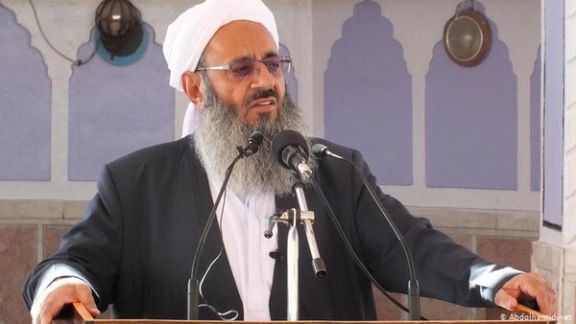
Zahedan's Friday Imam criticized the Iranian regime forces for blocking Sunni clerics' entry into the city, denouncing it as "narrow-mindedness."
In a response to the recent actions taken by security forces to prevent the entry of several prominent Sunni clerics into Zahedan, Mowlavi Abdolhamid, the outspoken cleric was quick to condemn the collective punishment.
The controversy began when security forces thwarted the journey of Mowlavi Habib ul-Rahman Mottahari, the director of the Sunni seminary of Khaf and several other notable Sunni clerics in Sistan and Baluchestan province who were attempting to travel to the provincial capital city. Security forces returned them to Khaf after inspecting their belongings.
Also, on Monday morning, security forces prevented the entry of Mowlavi Fazl ul-Rahman Kouhi, the Friday prayer leader and the director of a Sunni seminary in Sarbaz into Zahedan.
Abdolhamid, in his remarks on Monday, stressed, "Narrow-mindedness and ruling are not compatible. The ruler at the top should have a broader and more open view. They should not hinder the travels of scholars and question their destinations."
He emphasized that both the people and Sunni clerics are an integral part of the country.
The courageous cleric from the country's Muslim minority noted that "The general demand of the nation is to have freedom in the country and to avoid strictness."
Sistan and Baluchestan Province is not only one of the country's poorest regions but was among the regions that experienced the most extensive protests during the nationwide protests which began last year in the wake of Mahsa Amini's death in morality police custody. The region has seen a huge death toll in the hands of security forces and has seen thousands hospitalized after state sanctioned brutality swept the region.
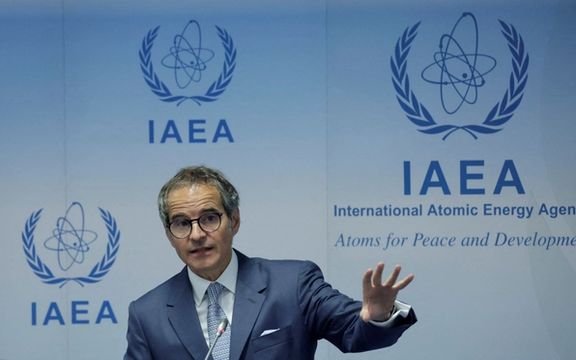
The UN nuclear watchdog warns the future of Iran's nuclear program could mirror the path taken by North Korea, characterized by secrecy and no international oversight.
Rafael Grossi, the Chief of the International Atomic Energy Agency (IAEA), stated on Monday that the world must not repeat the mistakes it made with North Korea, where IAEA inspectors were expelled in 2009, leading to the development of nuclear weapons.
The IAEA has had no access to the country since 2009 and has been monitoring its nuclear advancements from a distance, mainly through satellite imagery. While the agency maintains access to Iran's declared nuclear facilities, the recent expulsion of around one third of its inspectors by the Islamic Republic has raised major concerns.
Furthermore, the erosion of the 2015 nuclear deal between Tehran and major powers over the past five years has resulted in the removal of additional monitoring equipment, as requested by Iran. This has also prevented the IAEA from conducting snap inspections at undeclared sites.
Rafael Grossi, addressing an annual US State Department arms control conference via a recorded message, emphasized the critical role of the IAEA as the international community's eyes and ears in Iran. He expressed deep concerns about Iran's nuclear program and stressed the necessity of all possible efforts to prevent a situation similar to that of North Korea.
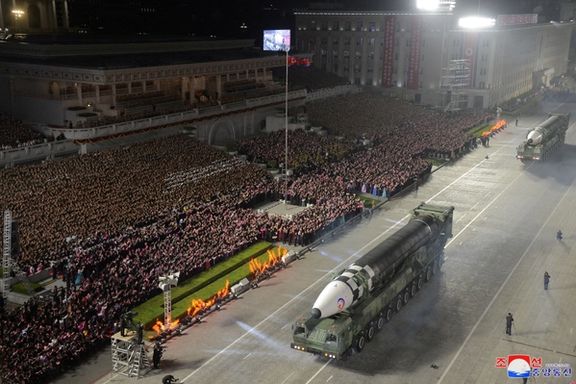
"We have to deploy every effort to prevent this problem, this current debate on what is happening and what can be done in Iran [from] becoming a failure on the part of the international community to prevent a country that has capabilities which could potentially lead to the development of nuclear weapons from doing it," he noted.
In September, Iran revoked the designation of several inspectors responsible for verification activities under the Non-Proliferation Treaty Safeguards Agreement. Grossi strongly condemned Iran's "disproportionate and unprecedented unilateral" decision, acknowledging it as a step in the wrong direction and an unnecessary strain on the relationship between the IAEA and Iran in the implementation of the NPT Safeguards Agreement.
Grossi's recent quarterly reports on Iran revealed that the Islamic Republic has now enriched enough uranium to approximately 60% purity, for several nuclear warheads. That stockpile can be further enriched to the roughly 90% required for weapons-grade material in a matter of a few weeks, making Iran a 'nuclear threshold state..
The agency is currently facing various standoffs with Iran, including disputes over identifying the origin of uranium particles found at two undeclared sites, the reinstallation of monitoring equipment that has been removed, and Iran's recent "de-designation" of IAEA inspectors.
Iran is has expanded its program significantly since 2018 when the United States unilaterally withdrew from the Iran nuclear deal – or Joint Comprehensive Plan of Action (JCPOA). Last month, three signatories of the deal, UK, France, Germany (E3) delivered a joint statement at the IAEA Board of Governors meeting in which they condemned Iran’s lack of transparency with regards to its nuclear program.
However, despite their emphasis on Iran’s non-compliance, the E3, much like the US, fell short of introducing measures that would ensure Tehran’s cooperation with the IAEA. On the contrary, just in August, the Biden administration agreed to release $6 billion of Iran’s funds blocked in South Korea due to US sanctions in exchange for five US citizens held hostage in Tehran.
In January, IAEA inspectors at Fordow detected undeclared centrifuge configuration changes as well as particles of uranium enriched up to 83.7%. When Grossi visited in March, he brought back an agreement that was hailed as a breakthrough by both sides but deemed insufficient and non-binding by its critics.
Seven months on, the premise seems to have been shaky at best. According to the IAEA, Iran has accumulated enriched uranium (5-60%) far beyond JCPOA limits that was hailed as a breakthrough by both sides but deemed insufficient and non-binding by its critics. Iran continues enrichment in Fordow, where inspectors detected undeclared particles of uranium enriched at 83.7%.
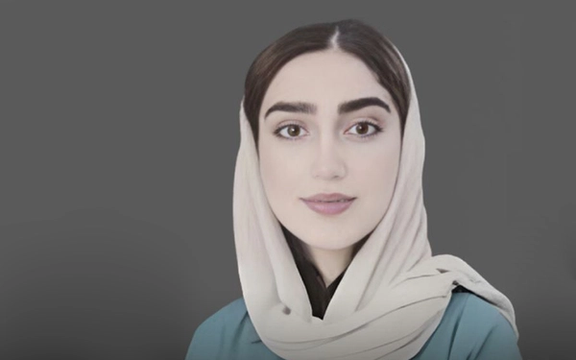
As honor killings surge in Iran, the past 17 days have seen at least 13 women murdered in horrifying incidents.
The most recent case, that of 20-year-old Razieh Hasanvand, has highlighted the pervasive issue, shedding light on the dire consequences of the phenomenon done in the name of Islam.
Razieh Hasanvand had been in a coma since October 14 after being shot, according to a report from the Hengaw Human Rights Organization. The young woman was a mother of one and had previously divorced her husband, who was her cousin, despite facing intense family opposition.
In recent times, Razieh had been under immense pressure from her brother to remarry another man. It was her own brother who shot her, reportedly because she had "left the house," as stated by Hengaw.
The Human Rights Organization emphasized, in another report, that from September 29 to October 16, a total of thirteen women in various Iranian cities have fallen victim to honor killings.
The exact number of such murders in Iran remains unknown, veiled in secrecy, but back in December 2019, the ISNA news agency reported that between 375 and 450 such killings occurred annually throughout the country. Given the lack of transparency of the regime and lack of transparent reporting of such deaths, it is likely to be far higher.
Critics have pointed to the Islamic legal system, as well as Iran's deeply ingrained patriarchal culture and traditions, as factors that perpetuate an environment allowing for such killings to persist.
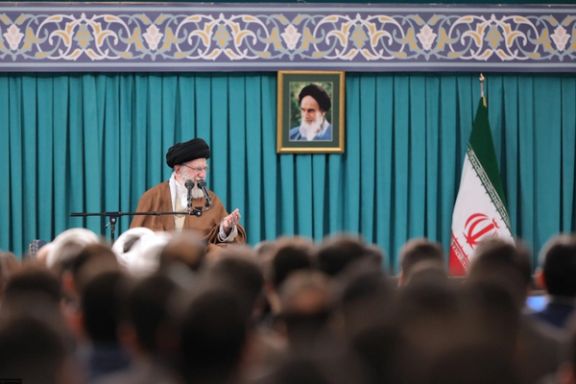
Iran’s ruler Ali Khamenei has downplayed the killing of Israeli civilians in a speech on Tuesday, saying they were armed and Israel has killed many more Palestinians.
“Some officials in certain countries, who have spoken with our officials, have protested in defense of the Zionist occupiers as to why Palestinians have killed civilians,” Khamenei stated.
“Firstly, this statement is contrary to the truth. Those who live in [Israeli] settlements are not civilians. They are all armed. Even if we assume they are non-combatants, how many non-combatants have been killed? The regime is now killing hundred times more women, children, the elderly, and the youth non-combatants who are in these buildings in Gaza, not the combatants who are not residing there. The combatants are in their own positions, and they also know this.” Khamenei said.
The Islamic Republic, led by the 83-year-old authoritarian ruler, has been financially and militarily supporting Hamas, the Lebanese Hezbollah and other militant organization designated as terrorist groups by several Western countries. Top Iranian officials and government media rejoiced the news of Hamas’ attack on October 7, after the enormity of civilian massacre has already emerged. The government ordered street celebration and vowed to continue support for Hamas.
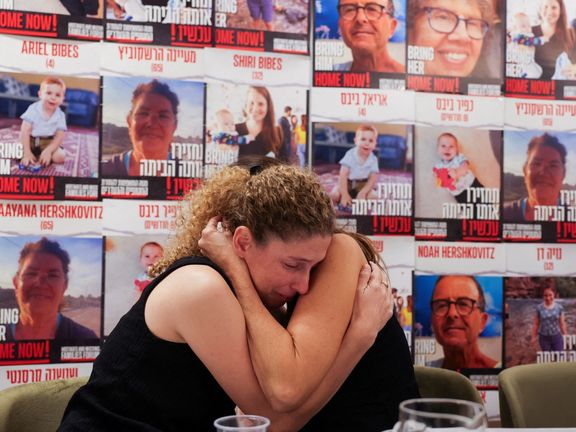
Khamenei went on to blame the United States for directing Israeli policies in the past one week, as Israel has been launching devastating air and artillery attacks against northern Gaza. Thousands of Palestinians have been killed and injured, as Hamas tries to prevent the population to move to less dangerous areas.
“They have to be prosecuted. The American government should also recognize its responsibility in this matter,” Khamenei said, and added, “Based on information we have, Americans are charting Israeli policies in the past one week. Americans should take responsibility, they are responsible. The bombings must be immediately stopped. Muslim nations are angry. Very angry. You see the signs of it, demonstrations by groups of people, not only in Islamic countries but also in Los Angeles, in the Netherlands, in France, in European countries, in Western countries. People are gathering, both Muslims and non-Muslims.”
He also warned that Muslims and the “resistance groups” might retaliate if “this crime continues.” It would be hard to prevent retaliation Khamenei said, quipping that in any case, “no matter what the Zionist regime does, it won't be able to compensate for the embarrassing defeat it suffered in this matter.”
Many Islamic republic officials and government entities have been sanctioned by the West over the years for their gross human rights violation against the Iranian population. Since September 2022, when widespread anti-regime protests broke out, security forces have killed well over 500 civilians and severely wounded hundreds. Many young protesters were targeted by shotgun pellets in the face and lost one or both eyes. The regime also arrested 22,000 people, including journalists and hundreds of minors.
At the same time, a deputy commander of Iran’s elite Revolutionary Guards was quoted by state media on Tuesday as saying that Israel will face another shockwave by the resistance front if its "atrocities" do not stop in Gaza.
"The resistance front's shocks against the Zionist regimes (Israel) will continue until this 'cancerous tumor' is eradicated from the world map," said Ali Fadavi.
"Another shockwave is on the way, if Israel does not end atrocities in Gaza."
Since the Hamas attack, the Iranian regime has mostly put aside its pretenses, showing clearly that Hamas and Hezbollah are virtually under their command.